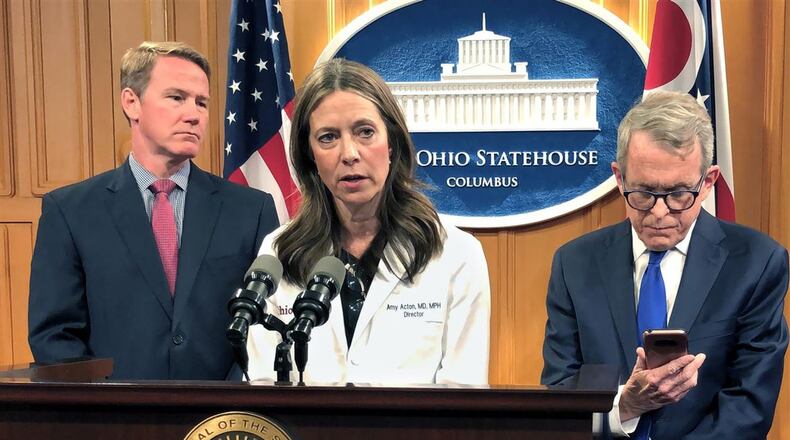The House voted 58-37 last week in favor of a change that would require approval by a legislative panel for ODH orders to extend beyond 14 days. The Senate rejected that change but is considering a standalone bill, SB311, that seeks the same thing.
RELATED: Ohio House seeks to limit Acton’s power; DeWine promises veto
Gov. Mike DeWine has said he would veto legislation that would diminish the health director’s powers.
A state law on the books for more than 125 years gives the ODH director the ability to order isolation or quarantine. Enforcement of these orders can be carried out by the state or local health departments and or law enforcement.
House Speaker Larry Householder, R-Glenford, said recent orders during the pandemic forced 11.7 million Ohioans to stay home to slow a virus that has infected less than 1% of the population. The stay home orders led to other problems, including 1 million unemployment claims and an increase in domestic violence, suicides and drug overdoses, Householder said.
“I fear that the cure is going to be worse than the illness, at the end of the day,” he said.
As dozens of protesters stood in the Senate gallery, Democrats and Republicans tangled over the wisdom of changing power of the state health director in the middle of a global pandemic.
State Sen. Peggy Lehner, R-Kettering, said it was arrogant to think six lawmakers on a panel should be making life or death decisions during a health emergency.
“This is really, really hard work. There isn’t a person in this room, there isn’t a person in the state of Ohio, there isn’t a person in the country, there isn’t a person in the world who has dealt with the issue that we’re facing today,” she said.
Lehner, who opposes abortion, said life should be put above concerns about civil liberties.
“This is not the time to say change this or change that. Do we need to have some conversations? Absolutely. But let’s get through this first,” said state Sen. Cecil Thomas, D-Cincinnati.
About the Author

